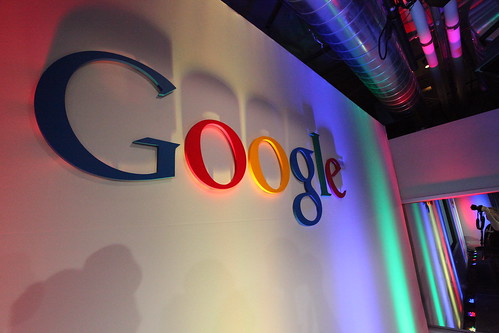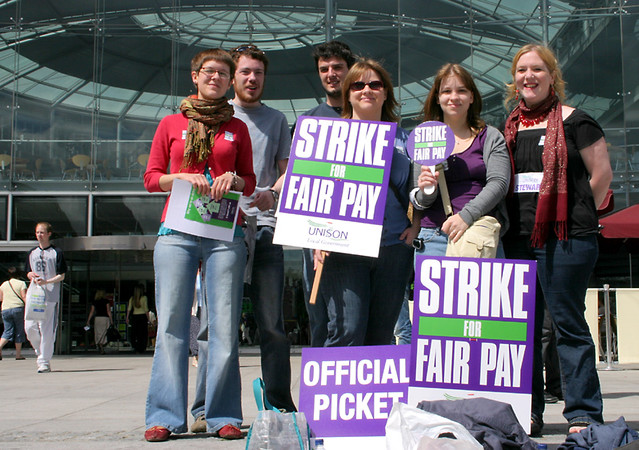Social media went into overdrive on Monday evening UK time when Google announced a formal restructure of all its businesses, creating a new company called Alphabet. For the man on the street, Google means Search, YouTube, Drive (including Docs, Sheets etc.), email and Android. For the average marketer you can throw various advertising products and Google Analytics into the mix. For business IT managers, it is everything from productivity, software-as-a-service and possibly as a supplier of a search appliance for its internal servers.
Three different customer types exist and a product set that grows layer-by-layer like an onion. The bulk of Google’s revenue currently comes from advertising due to the clever technology behind it. One can see from Microsoft’s move to the cloud that there is less revenue in cloud computing than in Google’s current business, so when advertising reaches a natural ceiling for growth, services will provide an incremental benefit at best.
Android was designed as a conduit to Google services and for advertising to venture out into the mobile space. But the world’s most popular mobile operating system is not without its own issues. Despite all phones essentially looking the same, there is a massive amount of fragmentation in the Android marketplace, which makes life harder for developers. Google is also a developer, so building applications that it can build loyalty through and make money from becomes more difficult.
Secondly, an appreciable amount of Android devices (those sold in China) and many sold in Russia don’t use Google services and provide little to no opportunity for Google advertising.
This means that Google is forced to make big bets in very different sectors. Sergey Brin and Larry Page, partly because of their entrepreneurial nature to explore new opportunities, built in an ability to scale Google beyond the business lines that I have outlined above. This was apparent from their original IPO share prospectus and accompanying letter. Xerox is famous in Silicon Valley lore for fumbling the future, by inventing lots of products that would be recognisable to us today in the late 1960s and early 1970s, only to see a corporate head office miss the boat. Brin and Page would have had some awareness of this. Microsoft’s inability to leapfrog beyond its core business successfully is probably also a factor for consideration.
Alphabet formalises the framework that Page and Brin had been working to for a number of years.
So what does this mean to Google?
For the foreseeable future Alphabet will be more of the same for Google. We’ve the seen the business scale back services. By September last year Google had closed down 30 services. It has cut back the functionality of Google Adplanner as a reference tool, to just focus on sales. Google has continued to prune back services such as Google+ (a challenging task given the tentacles + has across Google’s services). The changes inside Google for staffers also reflect similar moves towards profit optimisation, move away from experimentation and being a ‘mensch’.
The biggest move was to get rid of the 20% of time engineers could devote to projects that interested them. The truth is since at least 2009, the Google myth of people working there to change the world rather than delivering profit hasn’t held sway for a great deal of their staff.
On the outside Google will still likely have playful swag and cool offices, but the reality is that it will be more of a ‘normal’ business. That means that we won’t see the next Facebook coming from within Google and that whilst the speed of evolution will continue to run along at the same pace, substantial innovation probably won’t. This kind of business requires a different kind of leader to Page, and by appointing Sundar Pichai, will create a cultural break from the past. Pichai is likely to be able to get more revenue out of the Google ‘cash cow’ to help drive innovation in these other areas.
Page and Brin are freer to bring their energy to the other businesses in Alphabet. For instance, keeping Nest out of Google allows it to work easier with Google competitors like Apple and Microsoft as part of a wider eco-system.
Lastly, it could be an effort to ring fence Google’s anti-trust woes within the existing business and prevent restrictions being imposed against its newer businesses because of the past sins of the core business.
So what does Alphabet mean for marketers?
Google is likely to pursue a steady as she goes approach. The focus will be to optimise revenue, so there will be tension with agencies on advertising practices. We’ve already seen this, with Google restricting methods of buying YouTube advertising. These changes will impact the advertising technology business around programmatic advertising.
The picture with SEO is more about slow and steady change; Google has evolved its Panda index changes to a rolling change rather than the massive shake-ups of old.
More Google related articles here. Originally written for Racepoint Global’s now defunct CommsTalk blog.
More information
Android Fragmentation Report August 2015 – OpenSignal
2004 Founders’ IPO Letter – Investor Relations – Google
Fumbling the Future: How Xerox Invented, then Ignored, the First Personal Computer
What’s eating Google’s brand | renaissance chambara
Why Google Employees Quit? | TechCrunch
Google Tightens How Advertisers Buy YouTube Ads | AdWeek
Google’s $6 billion miscalculation on the EU | Bloomberg Businessweek

